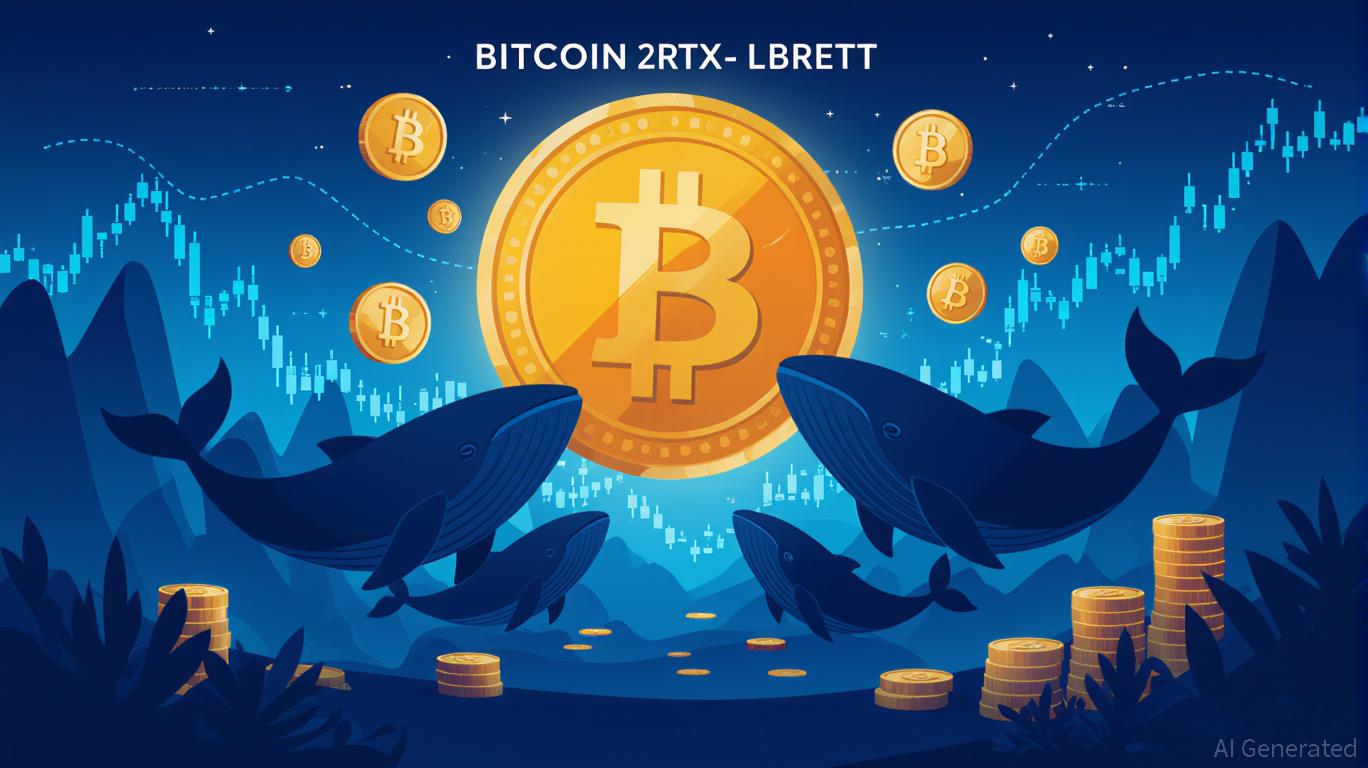
Bitcoin’s Q3 2025 volatility has been a double-edged sword for investors. While the asset’s price swings have tested risk tolerance, they’ve also revealed a critical truth: large holder behavior is reshaping the crypto landscape. From institutional ETFs to retail whale movements, the data paints a picture of a market in transition—one where Bitcoin’s turbulence is not a barrier but a catalyst for altcoin opportunities.
The Institutionalization of Bitcoin and Its Side Effects
Bitcoin’s recent volatility, marked by an MVRV-Z score spiking to 2.7 (a sign of overheating), has been tempered by institutional accumulation. U.S. spot ETFs now hold 1.3 million BTC (6% of total supply), while MicroStrategy’s $71.2 billion hoard of 629,376 BTC underscores corporate confidence. These moves, coupled with the Trump administration’s August 7 executive order allowing 401(k) accounts to invest in Bitcoin, have injected $89 billion of long-term capital into the market. The result? A structural shift from retail-driven chaos to institution-led stability.
Yet, this stability comes with a caveat. On-chain metrics like declining daily transaction counts and rising average transaction sizes signal a consolidation phase. Bitcoin’s role as a store of value is solidifying, but its speculative edge is waning. For investors, this means the next frontier lies in altcoins—specifically those attracting whale capital with real-world utility.
Whale Activity: The New Compass for Altcoin Investing
Whale transactions in Q3 2025 have become a barometer for market sentiment. Take Remittix (RTX), a PayFi project targeting the $750 billion remittance market. Ethereum and Solana whales have been aggressively accumulating RTX ahead of its September 2025 Beta Wallet launch. This wallet, which enables cross-border payments with 0.1% fees (vs. 5–10% for SWIFT), has drawn $20.6 million in presale funding and CertiK audits. Whale wallets now hold 100,000+ RTX tokens, staking them for long-term yield—a clear signal of conviction.
Similarly, Layer Brett (LBRETT), an Ethereum Layer 2 project, has seen inflows from traditional meme coin investors fleeing Dogecoin and Pepe Coin. With a 20,000% APY staking reward and a fixed supply of 10 billion tokens, LBRETT’s presale has raised $850,000, attracting 2,000+ global participants. Whale activity here isn’t just speculative; it’s a bet on scalable infrastructure and Ethereum’s Layer 2 dominance.
Decoding the Signals: How to Spot Whale-Driven Opportunities
- On-Chain Metrics as Early Indicators: Tools like Whale Alert and CryptoQuant track large transactions in real time. For example, RTX’s staking wallet inflows surged 400% in July 2025, coinciding with its BitMart listing. Such spikes often precede price surges.
- Utility Over Hype: Projects like RTX and LBRETT are winning whale favor by solving real problems—low-cost remittances, scalable transactions. Investors should prioritize tokens with tangible use cases and institutional-grade security (e.g., CertiK audits).
- Regulatory Tailwinds: The 401(k) policy change has created a $89 billion liquidity pool. Altcoins with clear regulatory compliance (e.g., RTX’s institutional-grade tokenomics) are better positioned to capture this capital.
Investment Strategy: Balancing Risk and Reward
While Bitcoin’s volatility remains a wildcard, the altcoin space offers asymmetric upside. Here’s how to navigate it:
– Diversify Exposure: Allocate 10–15% of a crypto portfolio to high-conviction altcoins like RTX and LBRETT, which combine utility with whale-driven momentum.
– Monitor On-Chain Flows: Use platforms like Etherscan to track whale movements into staking pools or large wallets. A sudden accumulation of 100,000+ tokens is a red flag for dumping—or a green light for entry.
– Hedge with Bitcoin ETFs: As institutional ETFs continue to accumulate BTC, consider using them as a buffer against altcoin volatility.
The Road Ahead: A Market in Motion
Bitcoin’s Q3 volatility is a symptom of its maturation. As institutions anchor the asset’s value, whales are redirecting capital to altcoins that offer both utility and scalability. Projects like RTX and LBRETT are not just riding the wave—they’re shaping it. For investors, the key is to align with these signals, leveraging on-chain data and regulatory trends to identify the next big moves.
In a market where every whale transaction tells a story, the question isn’t whether Bitcoin will stabilize—it’s where the next chapter of crypto innovation will be written. And for those with the tools to read the signs, the answer is already in the data.


